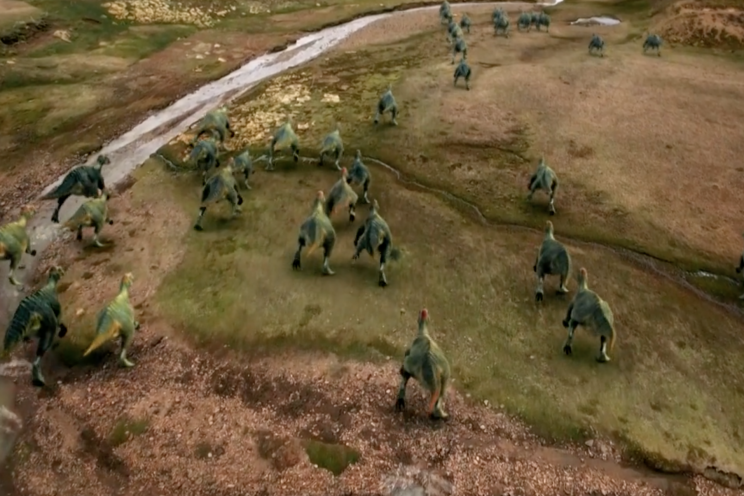The last day of the dinosaurs: BBC documentary reveals how they were made extinct
The dinosaurs would have survived the devastating asteroid that hit the Earth had it struck 30 seconds sooner or later, scientists say.
Man may not have become the planet’s dominant species if the timing of the asteroid had been even slightly different, a BBC documentary will say tonight.
The programme, The Day the Dinosaurs Died, broadcast on Monday at 9pm on BBC2, follows a team of scientists who drilled into the crater where the asteroid struck 66 million years ago.
MORE: Remains of one of the last ever dinosaurs found in Moroccan mine
MORE: World’s biggest dinosaur footprints discovered at Australia’s ‘Jurassic Park’
The asteroid landed 24 miles off the Yucatan Peninsula in Mexico, opening up a 111-mile wide and 20-mile deep crater.

When scientists drilled into the crater, they found the rock was rich in sulphur compounds.
They believe that when the asteroid vaporised this type of rock, the reaction filled the air with dust that blocked out the sun.
In turn, this cooled the planet to a temperature below freezing for a decade, wiping out the dinosaurs.

Those not killed by molten rock or tsunamis would have perished from starvation as their food supply was also destroyed.
The asteroid, estimated to have spanned nine miles, was travelling at 40,000mph.
But had it landed a few seconds sooner or later, it could have ditched in the Atlantic or Pacific oceans, causing substantially less damage.
Sean Gulick, professor of geophysics at the University of Texas at Austin, who organised the drill, said: ‘That asteroid struck Earth in a very unfortunate place.’

Professor Joanna Morgan, of Imperial College London, who co-led the study, said up to 100 billion tonnes of sulphates were thrown into the atmosphere by the asteroid.
‘That would be enough to cool the planet for a decade and wipe out most life,’ she said.
However, smaller animals – and, ultimately, humans – were given the chance to thrive.
BBC presenter Professor Alice Roberts told The Times: ‘Just half a million years after the extinction of the dinosaurs, landscapes had filled with mammals of all shapes and sizes.
‘Chances are, if it wasn’t for that asteroid we wouldn’t be here today.’



